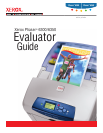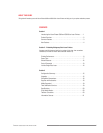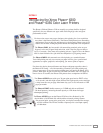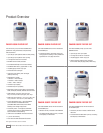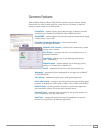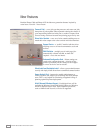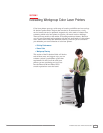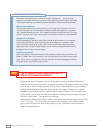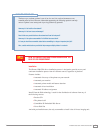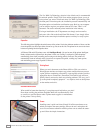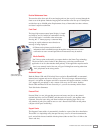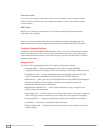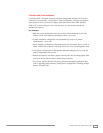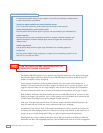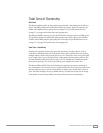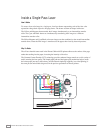
6
PHASER 6300/6350 EVALUATOR GUIDE
With print speed up to 26 ppm in color and 36 ppm black and white, the Phaser 6300 printers
stand up to the demands of most office workgroups. The Phaser 6350 printers extend color printing
up to 36 ppm so there is no speed penalty for being creative and adding color to your documents.
Both the Phaser 6300 and 6350 printers fly through big and complex jobs thanks to a common
800 MHz Power PC Risk Processor. With first page out times as fast as 12 and 10 seconds, both
printer families start printing faster than the competition. Printing first, and printing faster means
the jobs are done sooner – a real productivity advantage.
Both the Phaser 6300 and 6350 printers handle media weights from 60 to 216 gsm, and sizes from
3.5 x 5.5 in. to 8.5 x 35.45 in. as well as all common office envelopes, labels, business cards,
glossy media, and card stock. And an input capacity of up to 2350-sheets assures the office of
more uninterrupted printing
HOW THE PHASER 6300 AND PHASER 6350 EXCEED THE
PRINTING PERFORMANCE REQUIREMENT:
High quality color printing cannot come at the expense of productivity — the two must go
together. A color printer must be able to handle a wide variety of documents quickly and reliably.
A color printer must keep up with the performance demands of a shared network environment.
Measure overall performance.
To accurately measure overall performance in a real workgroup environment, send a mix
of black-and-white and color documents of different length and complexity to the printer
over a standard Ethernet network. This combines the network transmission time, first page
out time, and multi-copy engine speed to paint a clear picture of actual overall performance.
Calculate print job throughput.
Print job throughput is the time it takes from clicking the print button on your computer
screen to the final delivery of the color document to the output tray, sometimes called
click-to-clunk. Raw print speed is only a part of the total print time; image-processing
speed, particularly of large, complex images, can be even more important to maximizing
throughput. Test for large, complex images.
Consider color print speed.
Since color printing, rather than black-and-white printing, is the primary use of most color
printers, it makes sense to pay attention to the color print speed. Start with the rated engine
speed, but be sure to investigate the total color and black-and-white throughput, including
image processing speed and first page out time.
EVALUATE PRINTING PERFORMANCE



